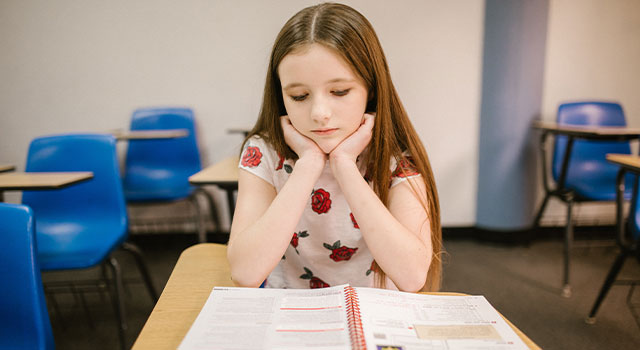
Basic Exophoria | Causes, Symptoms, And Treatments
Exophoria is an eye condition that affects binocular vision and eye alignment. A person with exophoria will experience one of their eyes drifting outward, and their eyes will have difficulty working together.
Exophoria is usually diagnosed in childhood and is most noticeable when reading, studying, focusing on near objects or when one eye is covered.
What Causes Exophoria?
The exact cause isn’t yet known, but the problem usually lies in the eye muscles.
Research published in The American Orthoptic Journal suggests that when the eyes are under stress, the weaker eye reacts by drifting outwards.
What Are the Symptoms of Exophoria?
Aside from one of the eyes drifting outwards, common signs and symptoms of exophoria include:
- Headaches
- Sore or painful eyes
- Poor reading/reading comprehension
- Double vision
- Tendency to close one eye
- Difficulty sustaining focus on near objects
- Temporary blurred vision
- Poor hand-eye coordination
- Poor depth perception
- Light sensitivity
- Motion sickness
- Lack of overall coordination
- General fatigue
- Reduced productivity in the workplace or at home
- Avoidance of visually demanding activities
How Is Exophoria Treated or Managed?
Managing exophoria involves minimizing symptoms, while treating exophoria targets the underlying cause of the problem.
In some cases of exophoria, specialized lenses or prisms are all it takes to manage symptoms and increase productivity.
But in the vast majority of cases, the most effective way to manage and treat exophoria is a personalized vision therapy program coupled with specialized lenses.
Vision therapy is a tailor-made set of eye exercises that help the eyes and brain work seamlessly as a team.
When it comes to exophoria, the goals of vision therapy are to:
- Eventually reverse or minimize the exophoria
- Enhance accommodative/convergence skills
- Integrate binocular function with other sensory functions (like auditory, vestibular, and kinesthetic)
- Enhance visual processing
- Increase visual stamina and focusing abilities
- Integrate binocular vision with motor skills
In most cases of exophoria, patients experience significant improvement after 30 hours of in-office vision therapy, but more visits may be necessary, depending on several factors.
What to Consider Before Starting Vision Therapy
Exophoria can present in mild to severe cases, and each patient will respond to treatment differently.
Some factors that influence the efficacy of vision therapy include, but are not limited to:
- Patient’s willingness to participate and perform at-home exercises
- Severity of the condition
- Other health conditions or cognitive/developmental conditions
- The amount of visually demanding activities the patient is involved with
- The type and result of prior interventions
After completing a successful vision therapy program, follow up care can include occasional visits with your vision therapist to ensure long-term stability.
We Can Treat Your Exophoria And Other Visual Conditions
At Grand Developmental Vision Institute, our vision therapy team is highly experienced in diagnosing and treating a wide range of visual dysfunctions.
If you or a loved one has been diagnosed with exophoria or experiences any of its symptoms, contact us to schedule a functional visual evaluation. If we find a visual problem, we’ll guide you through the most suitable treatment options for long-lasting relief.
Call Grand Developmental Vision Institute to schedule an appointment today!
Our practice serves patients from Winnipeg, Selkirk, Portage La Prairie, and Brandon, Manitoba and surrounding communities.










